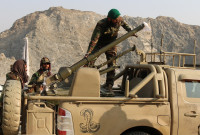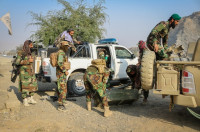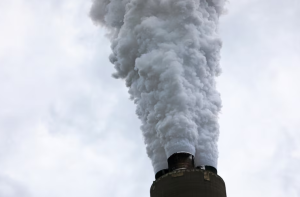World
Litterbugs not welcome in world’s highest peak
Litterbugs, beware: Nepal is making new rules to persuade trekkers to clean up after themselves on Mount Everest, in the hopes of clearing the tons of rubbish.
Associated Press
Litterbugs, beware: Nepal is making new rules to persuade trekkers to clean up after themselves on Mount Everest, in the hopes of clearing the tons of rubbish now clogging the world’s highest peak.
Starting this spring, Nepali officials at Everest base camp will check that each climber descends the mountain with approximately 8 kg of trash— the amount the government estimates an exhausted climber discards along the route.
“We are not asking climbers to search and pick up trash left by someone else,” said Madhu Sudan Burlakoti, head of the mountaineering department at the Tourism Ministry. “We just want them to bring back what they took up.”
The goal is to make sure no new trash will be left on Everest, which has earned the nickname “the world’s highest garbage dump” because of the tons of crumpled food wrappers, shredded tents and spent oxygen cylinders littering the mountain.
The government has long asked climbers to clear their trash, but there was no mechanism to check what people brought down. There also was little or no enforcement despite threats — which were rarely carried out — to withhold $4,000 climbing deposits for polluting teams.
The government did not say what action it would take against climbers who descend without the trash.
Some 230,000 people — nearly half of Nepal’s yearly foreign visitors — came last year specifically to trek the Himalayas, with 810 attempting to scale Everest.
More than 4,000 climbers have scaled the 8,850-meter (29,035-foot) summit since 1953, when it was first conquered by New Zealand climber Edmund Hillary and his Sherpa guide Tenzing Norgay. Hundreds of others have died in the attempt, while many have succeeded only with help from oxygen tanks, equipment porters and Sherpa guides.
Nepal authorities have never had much control over what happens at the mountain’s extreme altitudes and remote regions. Instead, private trekking companies organise logistics and report any problems. They are also left to clear the trash, launching yearly expeditions to bring down the items tossed by the last season’s climbers.
“There is no way to say how much garbage is still left on Everest,” said Dawa Steven Sherpa, who has been leading Eco Everest Expeditions since 2008. “It is impossible to say what is under the ice.”
Still, Sherpas and environmentalists applauded the government’s new clean-up rules.
“This rule should have been introduced a long time back,” said Ang Tshering, president of Nepal Mountaineering Association. “It is going to make sure that climbers obey the rules.”




 11.53°C Kathmandu
11.53°C Kathmandu









.JPG&w=300&height=200)




